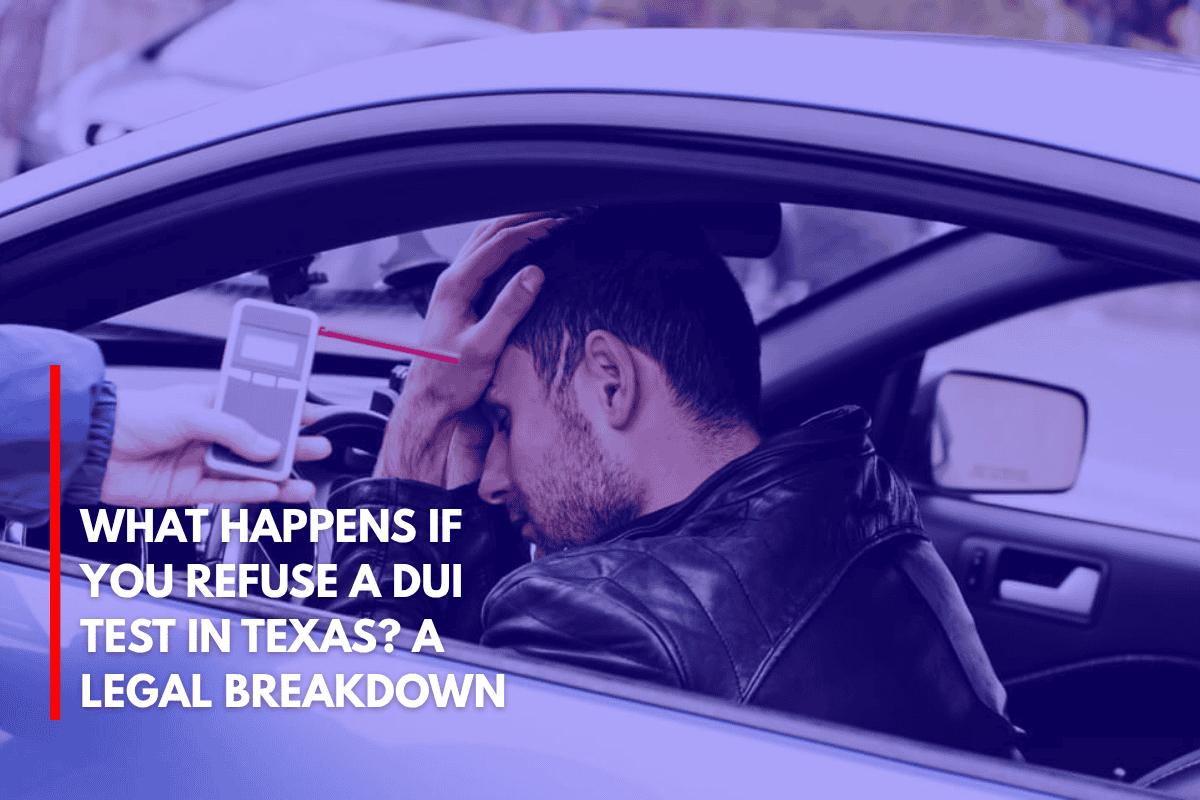If you are stopped on suspicion of driving under the influence (DUI)—referred to as “DWI” (Driving While Intoxicated) in Texas—and refuse to take a breath or blood test, you face immediate and significant legal consequences. Here’s a breakdown of what happens under Texas law:
Implied Consent Law
Texas enforces an “implied consent” law. By driving on Texas roads, you automatically agree to submit to chemical testing (breath, blood, or urine) if lawfully arrested for DWI. This means that after an arrest, you are legally obligated to take the test the officer requests, but you retain the right to refuse—though with consequences.
Consequences of Refusing a DUI Test
Automatic License Suspension:
First refusal: Your driver’s license will be suspended for 180 days.
Subsequent refusals: If you have previously refused a chemical test or have prior DWI-related offenses, your license can be suspended for up to two years.
Immediate Action:
The officer will confiscate your license at the scene.
You will be issued a temporary driving permit, usually valid for 40–41 days.
Administrative License Revocation (ALR):
The suspension is a civil penalty, separate from any criminal DWI charges.
You have 15 days from the arrest to request an ALR hearing to challenge the suspension. If you do not request a hearing, the suspension becomes automatic.
Possible Limited Driving:
If your license is suspended, you may be eligible for an occupational driver’s license, allowing limited driving for essential needs such as work, school, or medical appointments.
Use in Court:
Refusing the test can be used as evidence against you in a DWI trial, with prosecutors arguing that refusal indicates consciousness of guilt.
Other Evidence:
Even without a breath or blood test, officers can use field sobriety tests, observations, and other evidence to support DWI charges.
Warrant for Blood Draw:
If you refuse, law enforcement may seek a warrant to forcibly obtain a blood sample, especially in cases involving serious injury, death, or repeat offenses.
Key Differences: Before vs. After Arrest
Before arrest: You can refuse field sobriety tests and preliminary breath tests without automatic penalties, but refusal may give the officer probable cause to arrest you.
After arrest: Refusal of a chemical test triggers the implied consent law and results in license suspension.
Summary Table
| Action | Before Arrest | After Arrest (Implied Consent) |
|---|---|---|
| Field Sobriety Test | Can refuse, no penalty | N/A |
| Preliminary Breathalyzer | Can refuse, no penalty | N/A |
| Chemical Test (Breath/Blood) | No implied consent | Must submit or face license suspension |
What Should You Do?
Understand your rights: You can refuse tests, but only before arrest without automatic penalties.
After arrest: Refusal leads to license suspension, but you have the right to a hearing and to seek an occupational license.
Consult an attorney: Legal representation is crucial to challenge the suspension and defend against DWI charges.
Refusing a DUI test in Texas is not a crime, but it triggers serious civil penalties and can complicate your defense. Always consider consulting a DWI attorney to navigate these consequences.
Sources:
- https://www.roundrockcriminaldefenselawyer.com/blog/can-you-refuse-a-breathanalyzer-in-texas
- https://tlgtexaslaw.com/blog/should-you-refuse-a-breathanalyzer
- https://www.houston-criminalattorney.com/texas-implied-consent-and-refusing-dwi-tests/
- https://marcchavezlawfirm.com/what-happens-if-i-refuse-a-breathalyzer/











Leave a Reply